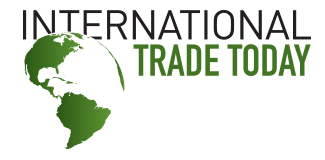Port Fee on Chinese Ships Could Raise Legal Questions, Panelist Says
If the Office of the U.S. Trade Representative decides that China's subsidies to its shipbuilding industry burden U.S. commerce through a range of unreasonable or discriminatory acts, a coalition of unions suggests it impose a fee on Chinese ships arriving at U.S. ports (see 2404170029). During a Washington International Trade Association webinar on the new Section 301 investigation, former USTR associate general counsel David Ross said China's subsidies are evident but the remedy is not.
"The real question … is the remedies," he said. "Is it administrable? Is it a good idea?"
Ross, a partner in WilmerHale's international trade practice, said the preliminary determination, including a remedy suggestion, could be ready in four to six months, but with another round of public comment after that release, the final determination won't come out until after the election.
Moderator Wendy Cutler, vice president of the Asia Society Policy Institute, asked Elizabeth Drake, a partner at Schagrin Associates and principal drafter of the Section 301 petition, why the unions filed now, and what success would look like. The U.S. has 0.13% of the global shipbuilding market.
Drake said the unions don't "have any specific number in mind" for how much market share the U.S. should be able to gain with government support for shipyards. She said that if the U.S. industry was 10 times bigger than it is now, "You’d have a lot more workers involved, you’d have a lot more surge capacity for national security needs."
In the petition, the lawyers said the port fee should be higher on larger and heavier ships, should be higher for newer ships, and the fee should increase at regular intervals to convince China to discontinue its interventions. It didn't say how much the port fee should be, but referred to a hypothetical $1 million fee for a 20,000 twenty-foot equivalent units (TEU) cargo ship.
This is not the first time that a Section 301 petition has been filed over subsidization in shipbuilding; the previous time, in 1989, the petition asked USTR to investigate subsidies in Norway, Japan, South Korea and Germany. Drake didn't mention that, but did mention that the Organization for Economic Cooperation and Development discussed levying a port fee on ships built with excessive subsidies; that OECD agreement was the result of negotiations that came out of the Section 301 investigation. The EU, Japan, Korea, Norway and the U.S. agreed to curtail subsidies, but the U.S. never ratified the deal, because it would have required the U.S. to end its duty on repairs of U.S.-flag vessels in foreign shipyards, and because the other countries potentially could have challenged the Jones Act, which doesn't allow foreign-built ships to carry cargo between U.S. ports.
Ross, who also served as international trade counsel for Senate Finance Committee Republicans before joining WilmerHale, said the unions' proposed remedy of a port fee raises "a lot of really, really complicated questions," both legal and practical.
"What do you do if somebody doesn’t pay that? Who collects? Who is it going to apply to?" He asked if it should only apply to Chinese ships built after the remedy is put into place, and "what if the Chinese ship is owned by a European shipping company?"



